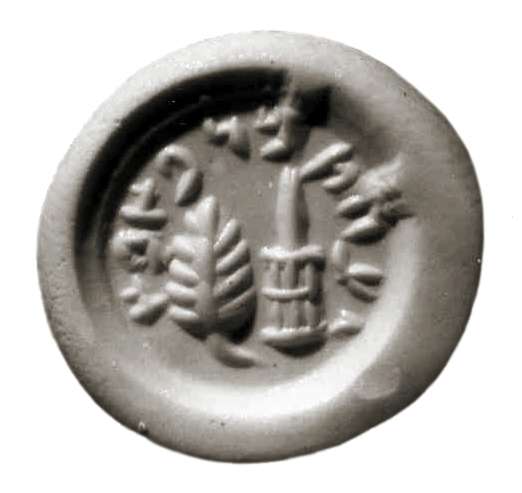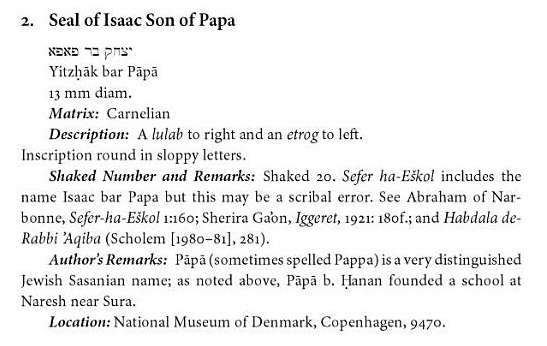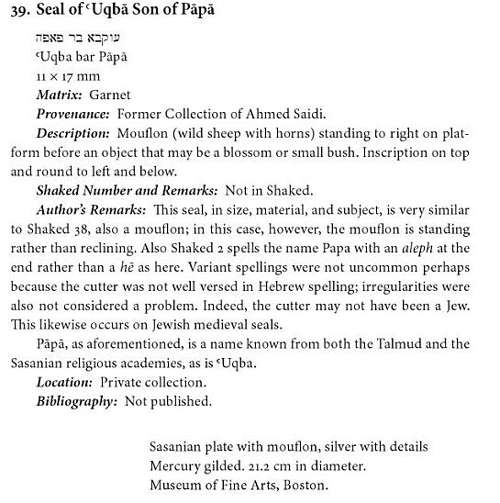Here is a Jewish Sasanian seal (between 3rd and 7th centuries CE) described as: Lulav and etrog, with the Hebrew inscription, "Isaac, son of Papa". Copenhagen, National Museum, inv. 9470. Cornelian, 13 mm (note that פפא is spelled פאפא).

Sasanian Jewry and its culture: a lexicon of Jewish and related seals by Daniel M. Friedenberg, pg. 28:

Another seal is mentioned as well:

Regarding spelling variants, I would just point out that there basically is no such thing as standardized spelling 1500 years ago. In fact there basically was no such thing as fully standardized spelling 500 years ago. To the extent that there is a canonical literature, spelling could be more standardized. For example, because of our Bible no one ever had a doubt how to spell a name like יהודה or משה, but newer names and words could be challenging and subject to the whims of the writer, who had no official dictionaries or lexicons to consult. That's why "Akiva" was spelled עקיבה or עקיבא, and there are many variant spellings in all languages.
Interestingly, there appears to be a Ge'onic variant of Kiddushin 70b's יהודה בר פפא ממזירא which reads יצחק בר פפא ממזירא, which is supported by the Munich Talmud MS. See אוצר הגאונים.
